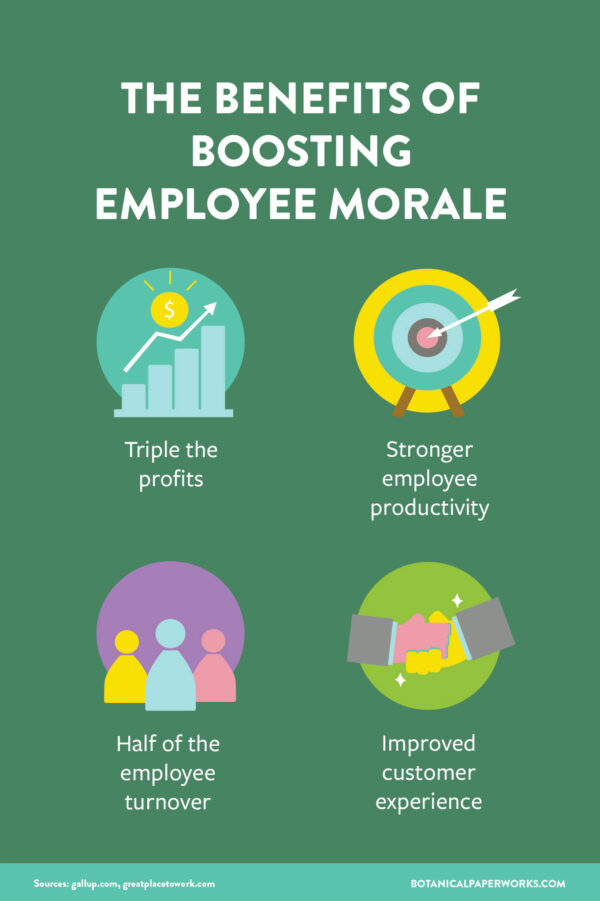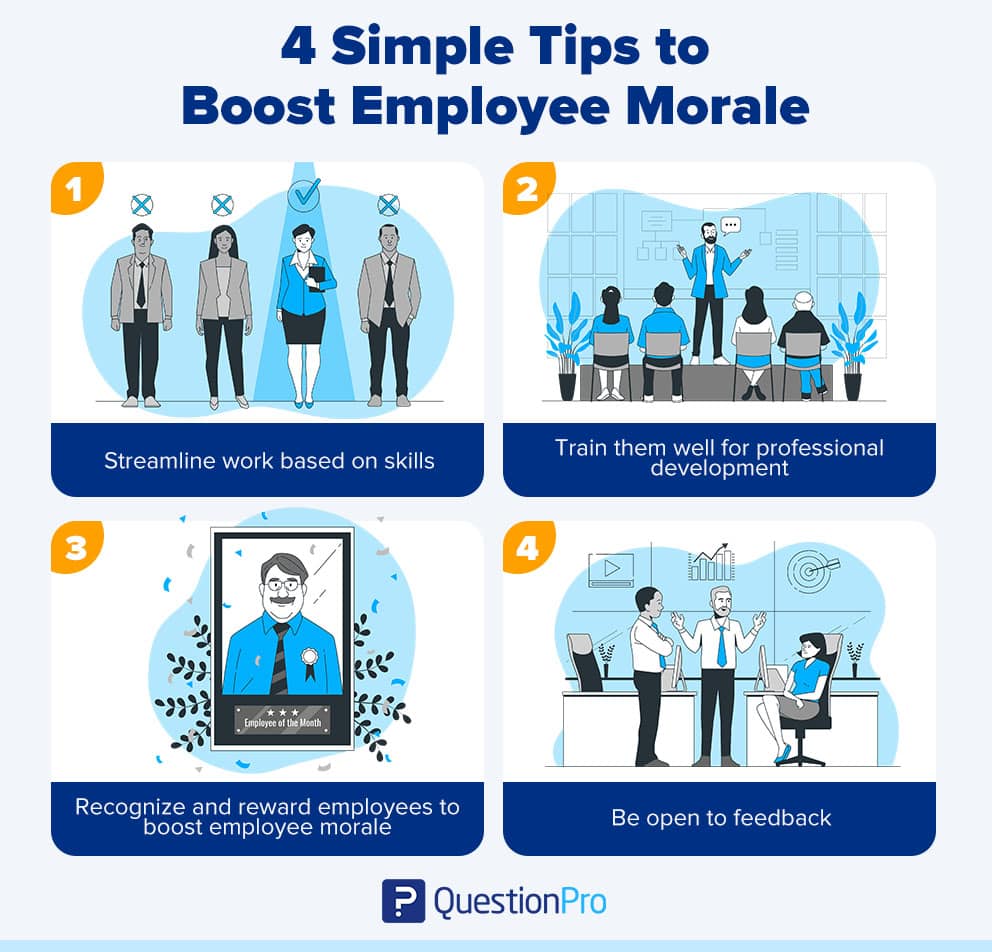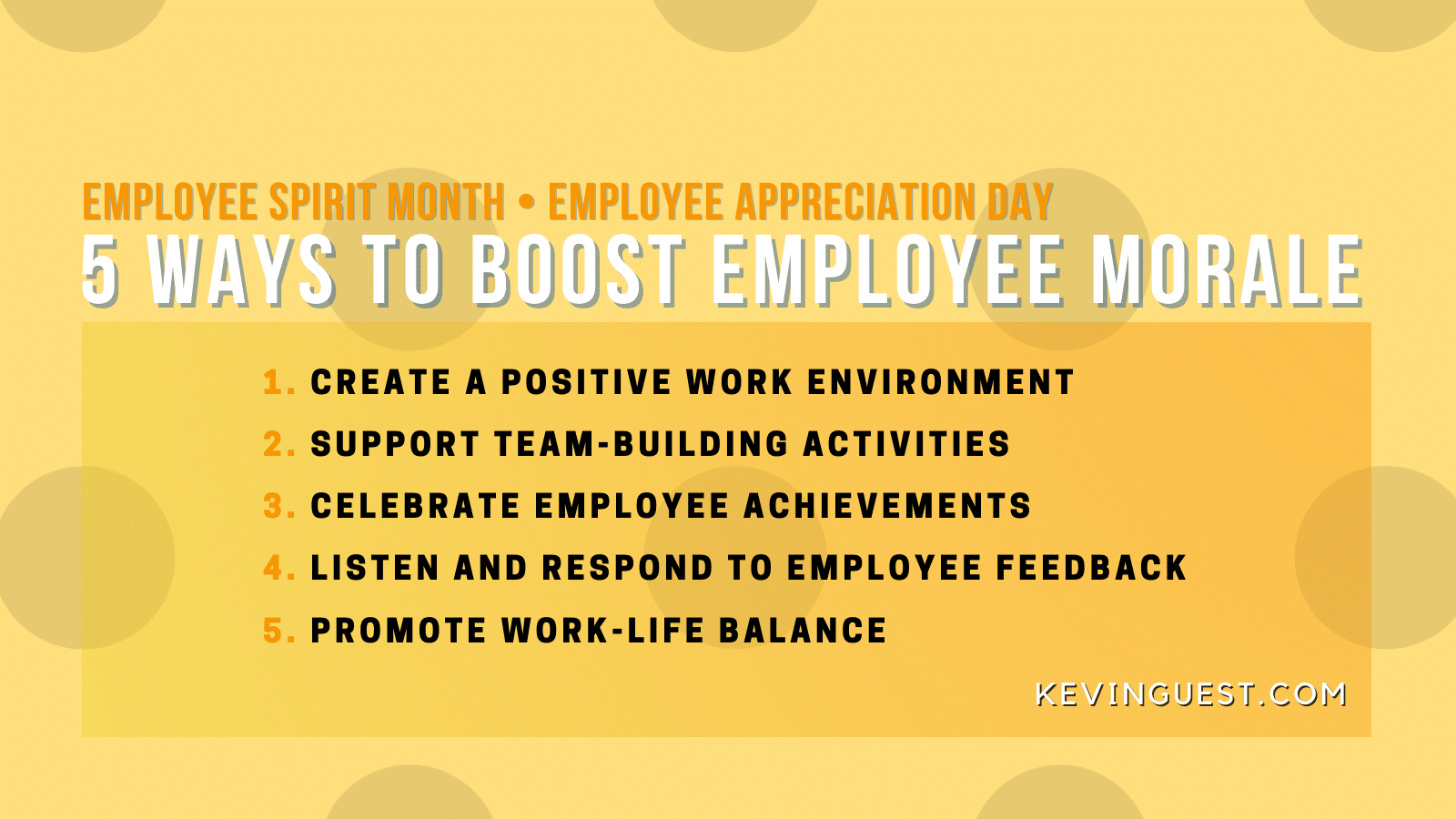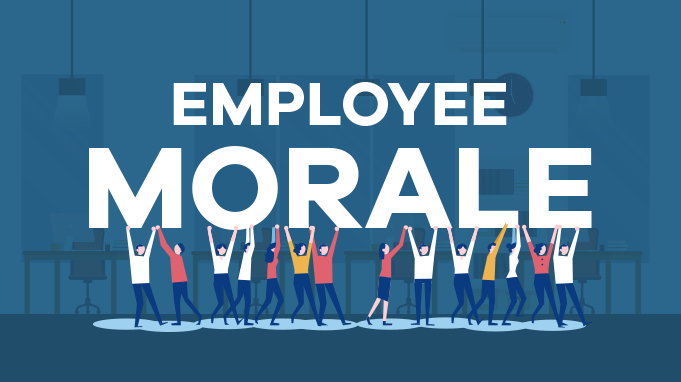Ways To Boost Morale In The Workplace
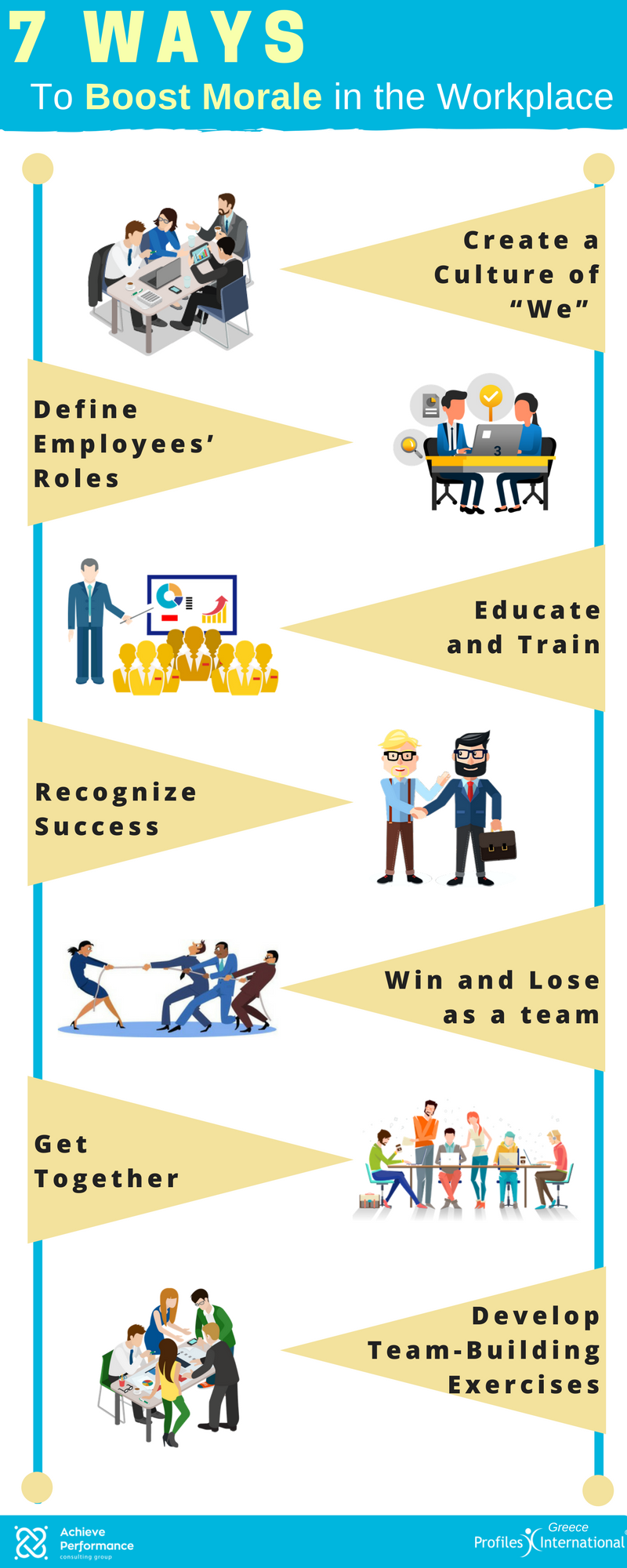
In an era defined by rapid technological advancements and evolving work dynamics, a silent crisis is brewing within organizations: dwindling employee morale. Disengaged workforces are not just a human resources concern; they represent a significant threat to productivity, innovation, and ultimately, a company's bottom line. The cost of ignoring this decline is steep, impacting everything from employee retention to customer satisfaction.
Boosting morale is not about superficial perks or fleeting motivational speeches. It's about creating a work environment where employees feel valued, respected, and empowered. This article delves into actionable strategies that organizations can implement to cultivate a positive and thriving workplace, drawing upon expert opinions and research-backed findings to provide a comprehensive guide.
Understanding the Root Causes
Before implementing solutions, it's crucial to understand the underlying causes of low morale. According to a Gallup poll, a significant portion of employees report feeling disengaged at work. Factors contributing to this disengagement include lack of recognition, limited growth opportunities, poor communication, and a feeling of being undervalued.
Harvard Business Review highlights the importance of psychological safety in the workplace. When employees feel comfortable taking risks, sharing ideas, and admitting mistakes without fear of retribution, morale naturally improves.
Strategies for Enhancement
Recognition and Appreciation
Acknowledging and appreciating employees' contributions is a cornerstone of boosting morale. Simple gestures like verbal praise, written thank-you notes, or employee-of-the-month awards can go a long way. A study by SHRM (Society for Human Resource Management) revealed that employees who feel recognized are more likely to be productive and loyal.
Consider implementing a formal recognition program that aligns with the company's values. This could involve peer-to-peer recognition, where employees can nominate each other for outstanding achievements, fostering a culture of appreciation and collaboration.
Investing in Growth and Development
Employees are more engaged when they feel like they are learning and growing. Providing opportunities for professional development, such as training programs, workshops, or mentorship opportunities, demonstrates a commitment to their long-term success. LinkedIn's 2023 Workplace Learning Report emphasizes the importance of skills-based training to meet the demands of an ever-changing job market.
Offer employees tuition reimbursement for relevant courses or certifications. This shows that the company is invested in their education and future career prospects.
Open Communication and Transparency
Transparent communication builds trust and fosters a sense of belonging. Keep employees informed about company goals, performance, and strategic decisions. Regularly solicit feedback from employees and act upon it whenever possible.
Implement regular town hall meetings or informal coffee chats with leadership to encourage open dialogue. This creates a platform for employees to voice their concerns and contribute to the decision-making process.
Promoting Work-Life Balance
In today's fast-paced world, work-life balance is more important than ever. Encourage employees to take breaks, use their vacation time, and disconnect from work after hours. A study by the American Psychological Association found that employees with better work-life balance report lower levels of stress and burnout.
Consider offering flexible work arrangements, such as remote work or compressed workweeks, to help employees better manage their personal and professional lives. This demonstrates that the company values their well-being and understands the importance of flexibility.
Fostering a Positive Company Culture
A positive company culture is essential for creating a thriving workplace. Encourage teamwork, collaboration, and a sense of community. Organize social events, team-building activities, or volunteer opportunities to foster camaraderie and strengthen relationships.
Deloitte's research on workplace culture highlights the importance of creating a diverse and inclusive environment where all employees feel welcome and respected. Embrace diversity, equity, and inclusion initiatives to create a sense of belonging for everyone.
The Role of Leadership
Leaders play a critical role in shaping employee morale. Effective leaders are empathetic, supportive, and communicative. They empower their teams, provide constructive feedback, and recognize individual contributions.
"People leave managers, not companies,"a common saying, underscores the profound impact of leadership on employee retention.
Leaders should lead by example, demonstrating the values and behaviors they expect from their teams. This includes being accountable, transparent, and respectful of others.
Looking Ahead
Boosting morale is an ongoing process, not a one-time fix. Organizations must continuously assess employee satisfaction, monitor engagement levels, and adapt their strategies accordingly. Utilizing employee surveys, focus groups, and exit interviews can provide valuable insights into areas that need improvement.
The future of work demands a greater emphasis on employee well-being and engagement. Companies that prioritize morale will not only attract and retain top talent but also create a more productive, innovative, and successful organization. Investing in employee morale is an investment in the future.
